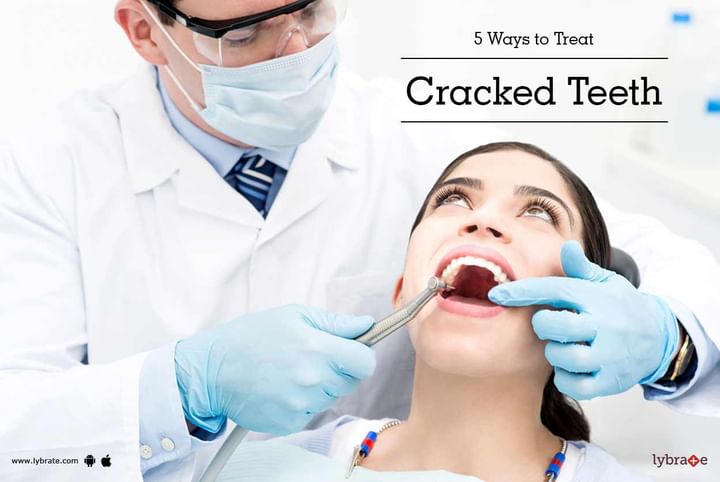Get the App
For Doctors
Login/Sign-up
Last Updated: Oct 31, 2019
BookMark
Report
5 Ways to Treat Cracked Teeth
Teeth are remarkably strong, but they can chip, crack (fracture) or break. This can happen in several ways:
- Biting down on something hard
- Being hit in the face or mouth
- Falling
- Having cavities that weaken the tooth
- Having large, old amalgam fillings that don't support the remaining enamel of the tooth
When a tooth chips or breaks, it may not hurt. However, your tongue usually feels the sharp area quite quickly. Minor tooth fractures usually don't cause pain, but if a large piece of the tooth breaks off, it can hurt. The nerve inside the tooth may be damaged. Extreme discomfort also can happen when nerve endings in the dentin are exposed to air, or to hot or cold foods or drinks.
Some of the types of cracked teeth, in increasing order of severity of the crack are listed below.
- Craze lines: These thin, shallow lines are limited to the outer layer of enamel and are very common in adults. They are not painful and only cause a mild esthetic concern.
- Fractured cusp: The tip of the front teeth or the cusp of the molars could be broken. In both cases, if only the enamel is chipped off, then there is no pain. However, if it extends into the dentin, it can cause sensitivity.
- Cracked tooth: The line of breakage is along the tooth, vertically extending towards the root, but the tooth is not split. This can be quite painful and requires immediate attention. Early intervention is helpful in preventing tooth loss.
- Split tooth: If the damage is even greater, then the crack continues through the length of the tooth and splits the tooth into two. This cannot be saved and in most cases will require extraction.
- Vertical root fracture: A blow to the lower line of the lower jaw can cause an injury like this. The crack begins in the root of the tooth and extends toward the crown. This leads to infection of the surrounding gums and teeth which is when they are usually detected.
The following are common methods to treat cracked teeth.
- Dental bonding: Dental bonding is a procedure, wherein, a tooth-colored composite material is applied to a tooth, sculpted into shape, hardened, and polished. It is called bonding because the material bonds to the tooth. An adhesive material resembling the tooth is permanently applied to mask and reinforce the crack lines making the tooth both esthetic and strong at the same. In newer treatments, there's a newer material that repairs cracks and can even salvage teeth that are even vertically fractured but prognosis depends from case to case. Dental bonding is ideal fixing a broken or chipped tooth or closing small gaps between teeth.
- Veneer: A thin layer of enamel is removed and either porcelain or composite is used to replace this enamel and the lost tooth structure. This can be used in cases of fractured cusps and broken edges of incisors also. Veneers make teeth look natural and healthy. Because they are very thin and are held in place by a special, strong adhesive, very little preparation of the tooth is needed. Some types of veneers don't need any preparation at all.
- Crowns: In some cases, especially molars, if the amount of tooth lost is significant, then a full crown may be needed to restore the tooth structure. For a crown to be placed without root canal, there should be no pain in the tooth.
- Root canal: If the crack is vertical or involves the root portion of the tooth, then it is very likely that the tooth will require root canal treatment. The root needs to be cleared of infection, and if there is significant tooth material lost, then a crown also would be required.
- Extraction: If a tooth has been broken, your dentist will try to fix it with a bonding, veneer, crown or other treatment. Sometimes, though, there's too much damage or has been vertically fractured and cannot be salvaged. In this case, it requires a removal. If you wish to discuss about any specific problem, you can consult a Dentist.



+1.svg)
